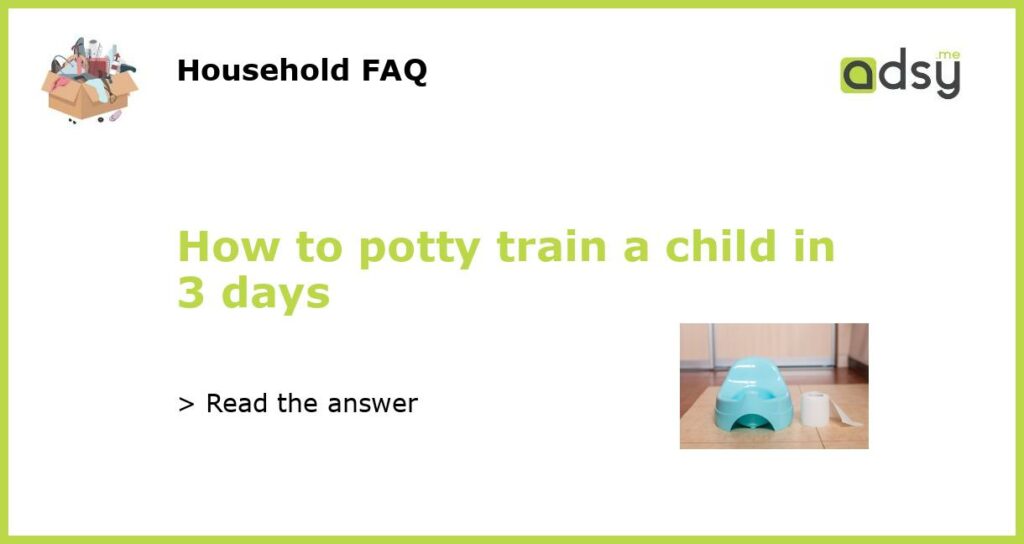Understanding the readiness of your child
Potty training can be a challenging milestone for both parents and children. However, with the right approach and some patience, it is possible to achieve success in just three days. The first step in this process is understanding the readiness of your child.
Every child is different, and there is no set age for when they should be potty trained. Some children may show signs of readiness as early as 18 months, while others may not be ready until they are closer to three years old. It’s important to observe your child’s behavior and look for certain cues that indicate they are ready to start potty training.
These cues may include staying dry for two or more hours, showing discomfort when their diaper is wet or soiled, expressing interest in using the toilet, and being able to follow simple instructions. If your child is displaying these signs, it’s a good indication that they are ready to begin the potty training process.
Create a potty training plan
Once you have determined that your child is ready for potty training, it’s important to create a plan. This plan will outline the steps you will take over the course of the three days to help your child transition from diapers to using the toilet.
Start by setting aside three consecutive days where you can focus solely on potty training. This means clearing your schedule and dedicating all your time and attention to this process. Creating a consistent routine during these three days will be crucial for your child’s understanding and success.
Make sure to have all the necessary supplies ready, such as a child-sized potty chair or a toilet seat adapter, training pants or underwear, wipes, and rewards or incentives. Having everything prepared ahead of time will help eliminate any unnecessary stress or interruptions during the potty training process.
Introduce your child to the potty
The next step in the three-day potty training process is introducing your child to the potty. Start by explaining to them what the potty is and how it works. Demonstrate the steps, like sitting on the potty, using toilet paper, and flushing the toilet. Allow your child to observe you using the bathroom, as this can help normalize the behavior.
Encourage your child to sit on the potty chair or toilet seat adapter without any pressure to perform. Let them get comfortable with the idea of using the potty. You can read books or sing songs about potty training to make it fun and engaging for your child.
If your child shows any signs of resistance or anxiety, it’s important not to force them. Be patient and give them time to adjust to this new routine. Remember that every child learns at their own pace, and it’s okay if they take longer to feel comfortable using the potty.
Use positive reinforcement and rewards
Positive reinforcement and rewards can be powerful motivators during the potty training process. Create a reward chart or sticker system where your child can earn a sticker or small prize each time they successfully use the potty.
Praise and celebrate your child’s efforts, even if they don’t always succeed. Remember that accidents are a normal part of the learning process, and it’s important not to shame or punish your child for them. Instead, offer reassurance and encourage them to keep trying.
You can also use verbal praise, high-fives, or cheering as immediate positive reinforcement when your child uses the potty. This will help reinforce the behavior and make them feel proud of their accomplishments.
Stay consistent and patient
Potty training is a process that takes time and patience. It’s important to stay consistent with your approach and be prepared for setbacks along the way. Keep in mind that accidents will happen, and it’s important not to get discouraged.
During the three-day potty training process, make sure to take your child to the potty regularly. Set a timer or schedule frequent bathroom breaks to help them establish the habit of using the toilet. Avoid using diapers or pull-ups during this time, as it may confuse your child and hinder their progress.
Remember to stay positive and supportive throughout the entire potty training journey. Your child will be much more likely to succeed if they feel loved and encouraged during this learning process.






